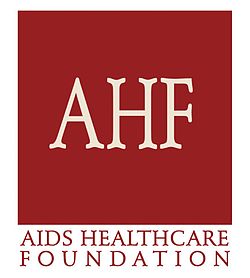
AIDS Healthcare Foundation calls for accelerating and scaling up the response to HIV in the CaribbeanThe AIDS Healthcare Foundation (AHF) is pleased to Partner with the Government of Haiti, UNAIDS and other relevant actors, to implement the 3rd LAC forum on HIV dubbed " Road to ending AIDS in LAC-Towards Sustainable Regional Fast Track Targets.
(Port-au-Prince, November 6, 2017) – From November 6 to 9, an international Forum is bringing to Haiti more than 150 national and international specialists to spur the dialogue on what are the key requirements to end AIDS in the region. AHF, which serves populations in more than a dozen countries in the Caribbean and in Latin America, has been a partner in implementing this joint effort from its inception in Mexico in 2014 and will continue to do so.
AHF, however, remains concerned about the slow implementation of the Test and Treat Strategy within the region and about the reduction as well as the inefficiency of utilization of existing donor funds.
“The percentage of overall funding allocated to treatment in the region is not in keeping with the evidence, which now indisputably indicates that getting to sustained viral suppression removes the risk of transmission. Yet, still only a half of those infected are on treatment, and worse, maybe less than half of those in treatment, is virally suppressed”, said Dr Kevin Harvey, Caribbean Regional director. “We must continue to discuss sustainability of the response and country ownership in light of retreating donors and restricted funding; however, we believe there is an even more urgent need to discuss the mammoth task of doubling and, in some cases, triple the number of persons receiving treatment. Moreover, the social barriers that limit one’s ability to stay on treatment, we have hardly started to address”, also noted the former Head of HIV Program in Jamaica.
AHF is committed to expanding its role in the response in this region and around the world as we scale up the resources it provides in the LAC. “Our goal is to directly support one million persons in care by 2020”, said Mr Michael Kahane, Southern Bureau Chief. “And we will not be neglecting small developing states such as Haiti, the Dominican Republic, Jamaica and Trinidad and Tobago.” Dr. Patricia Campos, Chief of the Latin America Bureau, pointed out that AHF is also calling on National governments “to address, as a national emergency, the implementation of treatment for those who have the virus, considering that Test and Treat is an intervention that will not only save the lives of the individuals treated, but will protect the whole society due to the resultant reduction in transmission at the community level.”
Finally, as the Forum evolves, AHF is calling on all the donors, governments and civil society within this region to urgently develop and implement a roadmap to ramp up care and treatment, in keeping with the sustainable development goals and 90 90 90 targets, as agreed by the UN and partners.
“The evidence is clear and well documented, we would have failed the next generation if we retreat now”, Dr Harvey concludes.
AIDS Healthcare Foundation (AHF), the largest global AIDS organization, currently provides medical care and/or services to almost 820,000 patients in 38 countries worldwide in the US, Africa, Latin America/Caribbean, the Asia/Pacific Region and Eastern Europe. To learn more about AHF, please visit our website: www.aidshealth.org, find us on Facebook: www.facebook.com/aidshealth and follow us on Twitter: @aidshealthcare.
– ENDS –
WHAT IS PANCAP?
PANCAP is a Caribbean regional partnership of governments, regional civil society organisations, regional institutions and organisations, bilateral and multilateral agencies and contributing donor partners established on 14 February 2001. PANCAP provides a structured and unified approach to the Caribbean’s response to the HIV epidemic, and coordinates the response through the Caribbean Regional Strategic Framework on HIV and AIDS to maximise efficient use of resources and increase impact, mobilise resources and build the capacity of partners.
What are the Global AIDS Strategy 2021–2026 targets and commitments?
If targets and commitments in the strategy are achieved:
- The number of people who newly acquire HIV will decrease from 1.7 million in 2019 to less than 370 000 by 2025
- The number of people dying from AIDS-related illnesses will decrease from 690 000 in 2019 to less than 250 000 in 2025.
- The goal of eliminating new HIV infections among children will see the number of new HIV infections drop from 150,000 in 2019 to less than 22,000 in 2025.
What are the 95-95-95 Targets for ending AIDS?
- 95% of People Living with HIV know their HIV status;
- 95% of people who know their status on treatment; and
- 95% of people on treatment with suppressed viral loads.
HELPFUL LINKS:
Global AIDS Strategy 2021–2026, End Inequalities, End AIDS
https://pancap.org/pancap-documents/global-aids-strategy-2021-2026-end-inequalities-end-aids/
Caribbean Regional Strategic Framework on HIV and AIDS (CRSF) 2019-2025
https://pancap.org/pancap-documents/caribbean-regional-strategic-framework-2019-2025/
